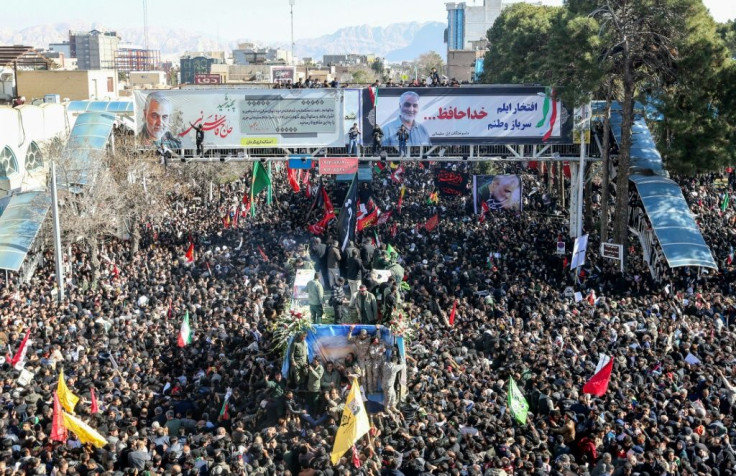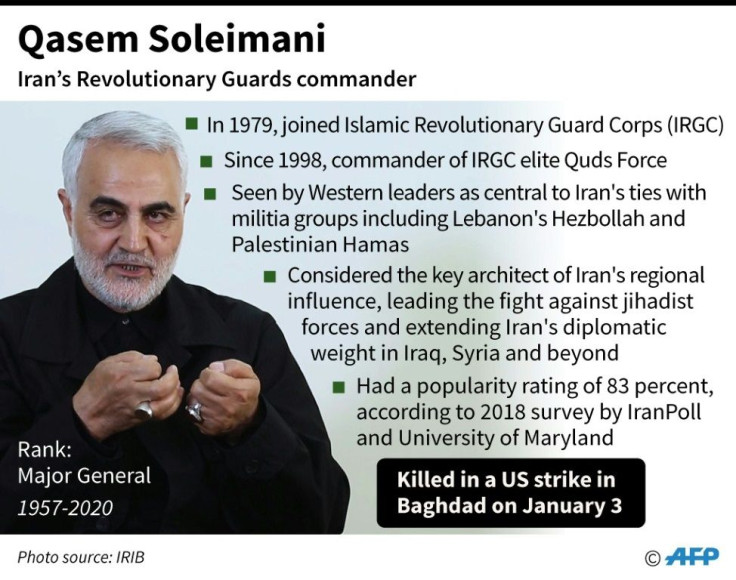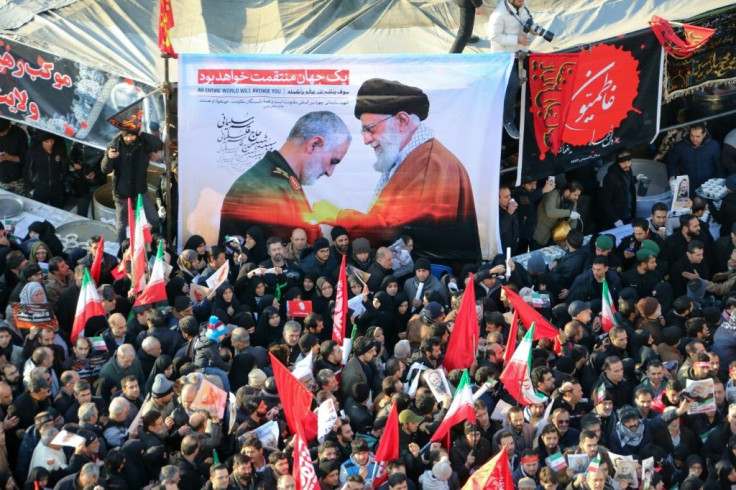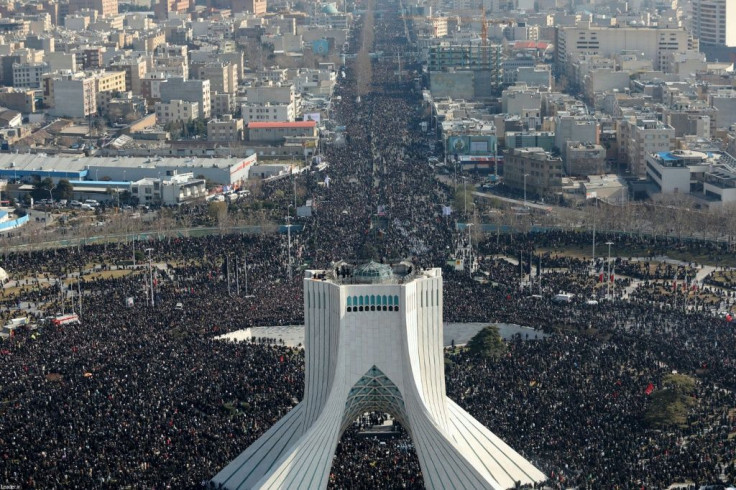Soleimani, 'Living Martyr' Who Rose Above Iran Rifts

The millions who turned out across Iran to mourn General Qasem Soleimani have testified to the apparent across-the-board popularity of a figure hailed as a "living martyr" for the Islamic republic.
Rising above divisions in Iran, funeral processions for the Revolutionary Guard commander assassinated in a US drone strike last week in Baghdad drew massive crowds between Sunday and Tuesday in the cities of Ahvaz, Mashhad, Tehran, Qom and finally Kerman, his hometown.
"The last time I remember such a crowd was at Ayatollah (Ruhollah) Khomeini's funeral 30 years ago," prominent Iranian journalist Maziar Khosravi said of the turnout in the capital, referring to the founder of the Islamic republic.
The show of national unity has contrasted sharply with the downbeat mood in the country since nationwide demonstrations that were violently put down by security forces in November.
Soleimani, killed at the age of 62, had been at the centre of power-broking in the region for two decades as chief of the elite external operations Quds Force of the Revolutionary Guards.

Powerful and always presentable, yet discreet, he was also a popular figure during his lifetime, not just in death.
A survey published in 2018 by IranPoll and the University of Maryland -- one of the few considered reliable by analysts -- found Soleimani had a popularity rating of 83 percent, ahead of President Hassan Rouhani and Foreign Minister Mohammad Javad Zarif.

Declared a "living martyr" by Iran's supreme leader Ayatollah Ali Khamenei while still alive, Soleimani was widely regarded as a hero for his role in defeating the Islamic State jihadist group in both Iraq and Syria.

In the eyes of many Iranians, his military and strategic prowess were instrumental in warding off the multi-ethnic disintegration of neighbouring countries such as Afghanistan as well as Syria and Iraq.
In a rare tribute to his status, a mosque in Qom, the spiritual capital of Shiite Iran, hoisted the red flag symbolising the blood of martyrs that is traditionally reserved for the Islamic holy month of Muharram.
Khosravi, the journalist, noted that huge crowds from different sectors of society had also turned out to mourn and pay tribute to Soleimani in Ahvaz, capital of the down-at-heel province of Khuzestan and a hotspot in last year's protests.
Hassan Razavi, a lawyer and University of Tehran teacher, explained the roots of the general's popularity at home.
"What people liked about him is that while some other military commanders after the Iraq-Iran war shifted their life toward politics and economy, he continued his role in the military," said Razavi.
He was seen to have played a "significant role in pushing (late Iraqi dictator) Saddam Hussein's army out of the country" during the devastating war that raged between the two neighbours from 1980 to 1988.
"People witnessed that he never took financial advantage of his position for his personal life," the lawyer said.
And, "he was so courageous that instead of leading the war out of war rooms far from the battlefield, he was in the middle of the battlefield on the frontline with his soldiers," Razavi said.
Whereas previously he kept out of the limelight, Soleimani had in recent years become an unlikely celebrity in Iran -- replete with a huge following on Instagram.
His profile shot up as the public face of Iran's intervention in the Syrian conflict from 2013, appearing in battlefield photos, documentaries -- and even being featured in a music video and animated film.
© Copyright AFP 2024. All rights reserved.




















